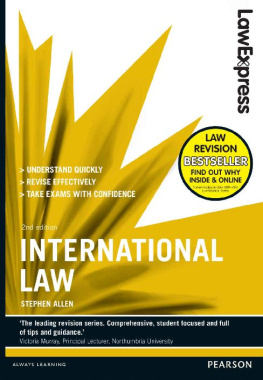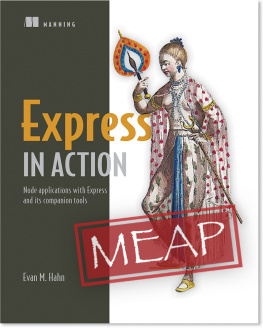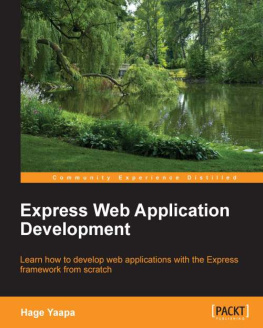Visit the Law Express series companion website at www.pearsoned.co.uk/lawexpress to find valuable student learning material including:
For more information please contact your local Pearson Education sales representative or visit www.pearsoned.co.uk/lawexpress
Acknowledgements
I would like to thank everyone who has reviewed draft chapters of this book. Their comments have been invaluable to the development of the book in its present form. I must acknowledge the tremendous contribution that Christine Statham and Donna Goddard at Pearson, have made to the production of this book. Their support and enthusiasm have been significant factors in the success of this project.
Stephen Allen
Queen Mary, University of London
Publishers acknowledgements
Our thanks go to all reviewers who contributed to the development of this text, including students who participated in research and focus groups which helped to shape the series format.
Introduction
International law is a popular subject which attracts large numbers of students. However, students often struggle with a number of its substantive topics. In part, this is because international law is very different from most other subjects that most students will have encountered. Many legal subjects (e.g. contract law) exist within a national law framework. Their rules are contained within recognised sources of law (e.g. in a statute), produced by established institutions whose authority to create law is unquestioned (e.g. Parliament). Such rules are liable to be enforced by the courts. In short, a national legal system is a hierarchical legal system. In sharp contrast, international law regulates relations between States and it recognises that all States are equal and sovereign. The international legal system does not have a central legislature nor a court endowed with compulsory jurisdiction to resolve legal disputes. In essence, it is a horizontal legal system. Consequently, international law is a very different kind of law from national law and the fundamental differences between the discrete areas of national law and international law can prove to be quite challenging for students. These differences can impact on any analysis of the nature of the international legal system; they can make it difficult to identify when international law has been created or changed; and they can make it difficult to identify and interpret international legal rules.
As a result, students face significant challenges in answering assessment questions in this subject. Questions often focus on theoretical legal issues. This book helps you to answer such questions, first, by highlighting the abstract issues that have shaped the subject. Second, it identifies the subjects pervasive themes so that you can understand discrete topics in a wider context. Finally, the book uses a range of innovative devices to provide you with strategic advice on how to recognise problematic aspects of international law and how best to tackle them.
Another challenge that international law presents to students is the fact that its various topics are closely interrelated. An assessed question will often involve a number of discrete topics. Accordingly, you will need to acquire a sound knowledge of a wide range of topics and you will also need to understand how they relate to each other. This book advises you on the best way to enhance your technique of answering assessed problems and essay questions. It shows you how to identify the applicable law; how to construct relevant arguments by reference to the most appropriate legal sources; and how to relate the discrete topics of international law to one another in a structured and coherent manner.
However, you should appreciate that the present book is no substitute for a good textbook. It enables you to consolidate and make sense of your learning. It offers you a concise account of the subjects key topics with the aim of providing you with targeted advice on how to improve your performance in assessed work by introducing you to a number of tried and tested revision methods and tips that will help you on the road to success.
REVISION NOTE
Use this book alongside your recommended textbook and the applicable primary sources (international instruments and cases).
International law topics are closely related and so it is important that you revise the whole syllabus of your international law module in order to give yourself the best opportunity of answering assessed questions well.
International law is quite different from any of the legal subjects that you have studied before. You should be sensitive to the unique challenges that it poses for international law as a form of law and the implications that its unusual legal character has for assessed questions in this subject.
Before you begin, you can use the study plan available on the companion website to assess how well you know the material in this book and identify the areas where you may want to focus your revision.
Guided tour


Guided tour of the companion website


All of this and more can be found when you visit
www.pearsoned.co.uk/lawexpress
Table of cases and instruments
Cases
A v Secretary of State for the Home Department (No. 2) [2006] AC 221
Aaland Islands Case (1920) LNOJ Special Sup. No.3, 3
Admissions Case . See Competence of the General Assembly for the Admission of a State to the United Nations (Advisory Opinion)
Al-Skeini v UK (2011) 53 EurHR Rep 589, App. No. 55721/07
Alabama Arbitration (1872) (1872) Moore 1 IntArb 495
Aminoil v Kuwait (1982) 21 ILM 976
Anglo-French Continental Shelf Case ( UK v France ) (1977) 54 ILR 6
Anglo-Norwegian Fisheries Case ( UK v Norway ) (1951) ICJ Rep 116
Arrest Warrant Case ( Democratic Republic of the Congo v Belgium ) (2002) ICJ Rep 3
Armed Activities Case ( Congo v Uganda ) (2005) ICJ Rep 168











